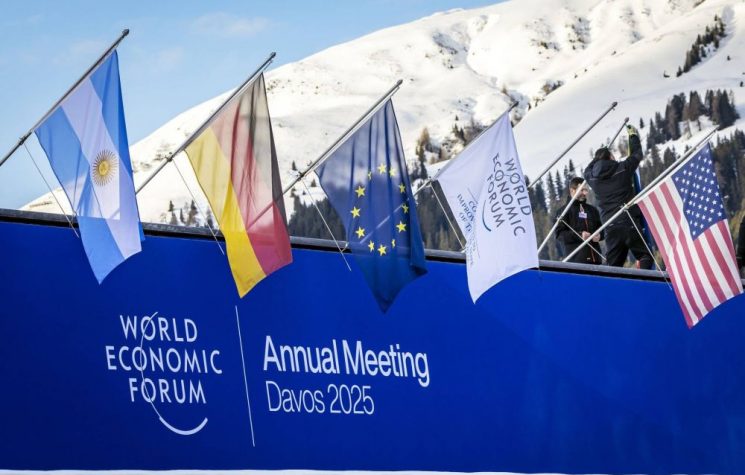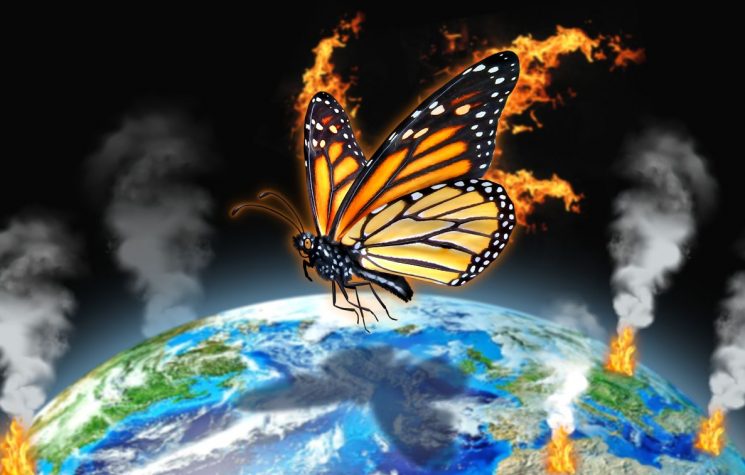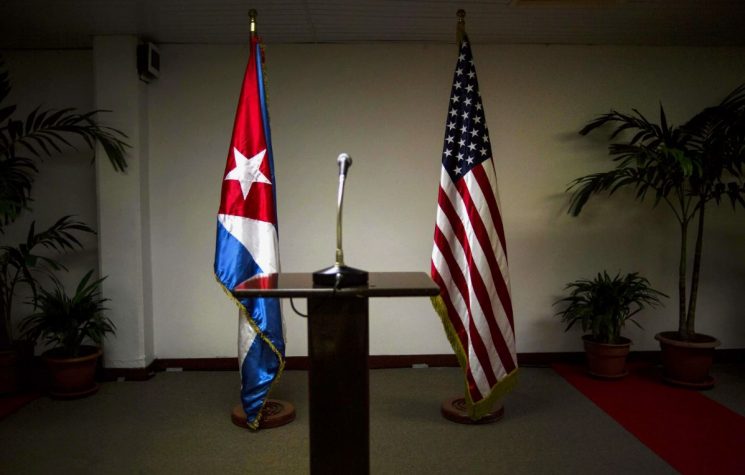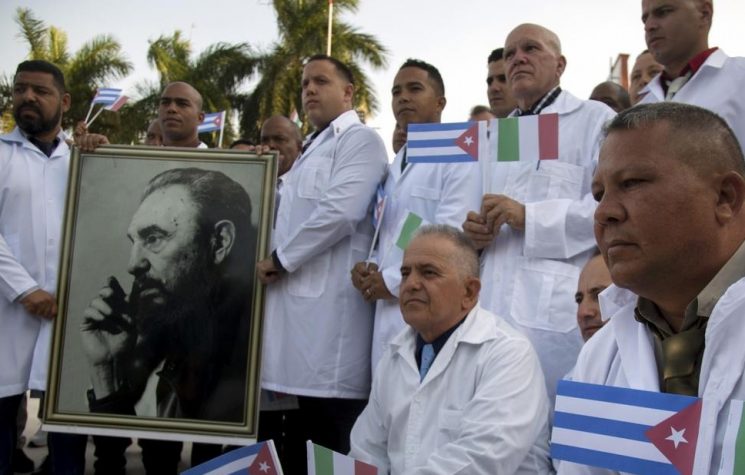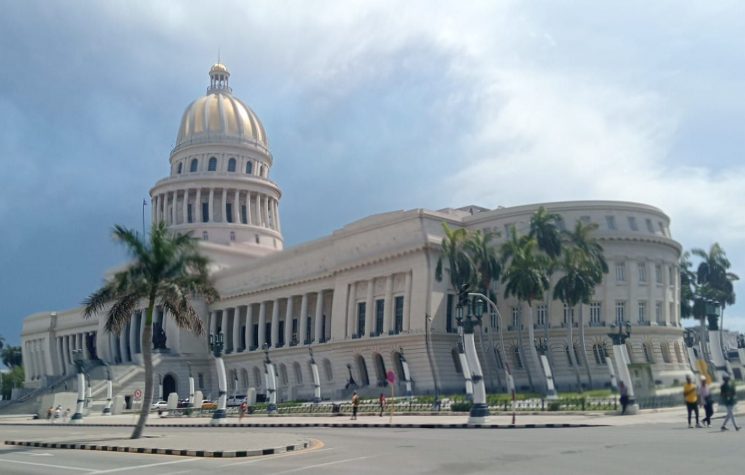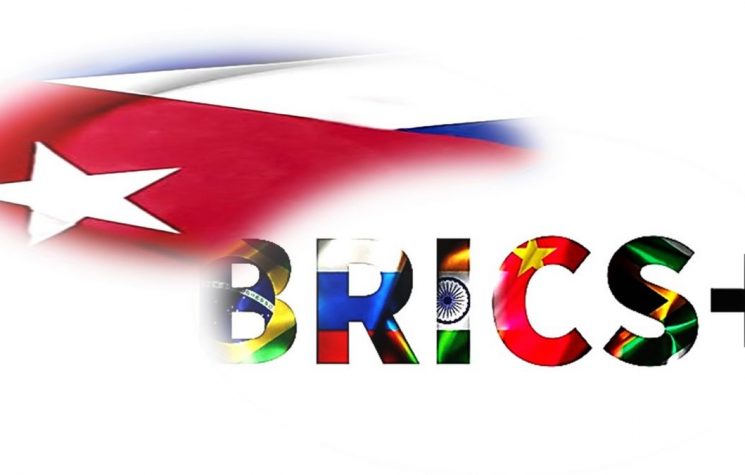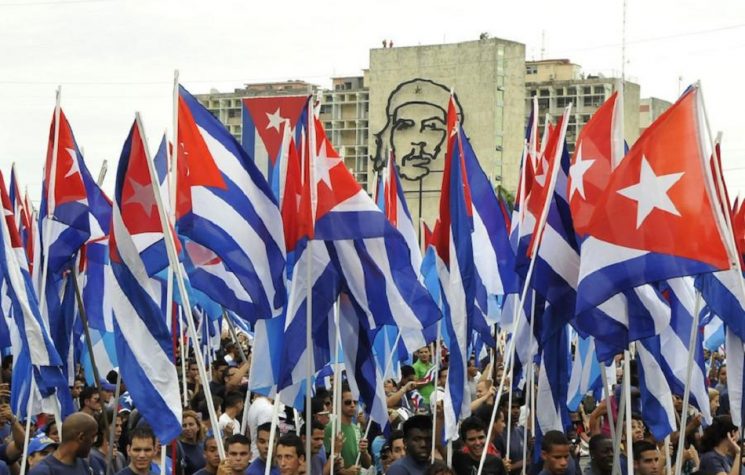Cuba will remain one of Washington’s chosen enemies, while relations with the murderous autocratic Saudi regime will be “recalibrated”.
According to the geopolitical analysis site STRATFOR, sanctions are “a coercive tool to compel a targeted entity to adjust its behaviour” and can be effected in a number of ways and, indeed, applied for very different reasons. An intriguing aspect of sanctions’ imposition is that some of these reasons are not intended primarily to alter the target’s behaviour but rather to penalise it for failing to follow the policies of the punisher.
For sixty years the U.S. punishment policy has been inflicted on Cuba, a small Caribbean island some 90 miles from Florida which has been malevolently victimised by successive administrations — bar one — in Washington.
The State Department official line is that “the United States maintains a comprehensive economic embargo on the Republic of Cuba. In February 1962, President John F. Kennedy proclaimed an embargo on trade between the United States and Cuba, in response to certain actions taken by the Cuban Government, and directed the Departments of Commerce and the Treasury to implement the embargo, which remains in place today.” Don’t you just love that “certain actions taken by the Cuban Government”? After all, the Cuban government didn’t try to invade the United States, but as recorded by history.com, “the Bay of Pigs Invasion in April 1961 was a failed attack launched by the CIA during the Kennedy administration to push Cuban leader Fidel Castro from power.”
Washington’s further actions included the wonderfully-named Operation Mongoose which involved, among other weird and wondrous schemes, several plans for the assassination of Cuba’s leader. (It is possibly coincidental that the U.S. series of anti-Russia military manoeuvres in the Arctic are titled Dynamic Mongoose.) It was a programme of terrorism, sabotage and psychological warfare bizarrely akin to later fandangos by the CIA and other agencies that were — and are — intended to disrupt and if possible destroy people and regimes whose policies are deemed undesirable by the Washington Establishment.
In the case of Cuba the energetic, expensive and illegal campaigns by the U.S. have failed to topple the Havana administration which, of course, is very far from democratic, as Cuba is a one-party state with an autocratic leader, just like North Korea and Saudi Arabia, to take a couple of examples.
It is notable that North Korea, with its totalitarian absolute dictatorship, is viewed as an implacable enemy of the United States while Saudi Arabia, with its totalitarian absolute monarchy, is a top purchaser of U.S. weaponry. Currently, President Biden is “reviewing” some future arms sales to the Saudis which from 2015 to 2020 totalled over 64 billion dollars, but relations seem to be cordial enough. Some observers might consider this a trifle inconsistent, given that during the presidential election campaign, now-President Biden referred to Saudi Arabia as a “pariah” state with “no redeeming social value,” but no doubt he has his reasons for rethinking that election stance.
On the other side of the world, the treatment of some of its citizens by the Cuban government is indeed reprehensible, and the State Department notes that “significant human rights issues included: unlawful or arbitrary killings, including extrajudicial killings, by the government; forced disappearance by the government; torture and cruel, inhuman, and degrading treatment of political dissidents, detainees, and prisoners by security forces; harsh and life-threatening prison conditions; arbitrary arrests and detentions . . .” and so on.
It is understandable that Washington disapproves of this state of affairs and there might even be justification for action against the Cuban regime in accordance with the Charter of the United Nations. Just as there could be justification for similar action against Saudi Arabia where, as the State Department records, “Human rights issues included unlawful killings; executions for nonviolent offenses; forced renditions; forced disappearances; and torture of prisoners and detainees by government agents. There were also reports of arbitrary arrest and detention; political prisoners; arbitrary interference with privacy . . . restrictions on freedoms of peaceful assembly, association, and movement; severe restrictions of religious freedom…” and so on.
So why do U.S. sanctions continue against Cuba, while U.S. relations with Saudi Arabia continue to be cordial? The State Department explains that so far as the latter is concerned the countries “have a common interest in preserving the stability, security, and prosperity of the Gulf region and consult closely on a wide range of regional and global issues” while they “enjoy robust cultural and educational ties” and their “partnership is rooted in more than seven decades of close friendship and cooperation” which is slightly longer than the time-span of Washington’s anti-Cuba campaign.
To be sure, the Saudis didn’t invite the former Soviet Union to station nuclear missiles in their territory as the Cubans did following the Bay of Pigs fiasco. This brought Soviet nuclear missiles close to the U.S. mainland in similar fashion to the earlier deployment of U.S. Jupiter nuclear missiles in Turkey which had brought Moscow within range.
Cuba could never be forgiven for its actions, and the sanctions grew in number and range until in 1982 President Reagan increased their severity after designating Cuba as a State Sponsor of Terrorism for its support of anti-government guerrillas in South America. Then in the Nineties, Presidents GHW Bush and Bill Clinton made the sanctions even tougher. The Helms-Burton Act of 1996 formalised the condition that they would remain in place until “such time that a transition government or democratically-elected government is in power.”
President Obama brought common sense to the needless and fruitless confrontation and initiated dialogue in 2014. The U.S. rescinded the absurd designation as a state sponsor of terrorism, restored diplomatic relations, cut restrictions on travel, and generally behaved like a grown-up country. In 2016 Obama went to Havana — the first U.S. President to visit Cuba since Calvin Coolidge in 1928 — and in a standing-room only speech declared that “I have come here to bury the last remnant of the Cold War in the Americas. I have come here to extend the hand of friendship to the Cuban people . . . I’ve made it clear that the United States has neither the capacity, nor the intention to impose change on Cuba. What changes come will depend upon the Cuban people. We will not impose our political or economic system on you.” It looked as if an era of pragmatism and sanity was dawning.
But the dawn was doomed by Trump who promptly destroyed all agreements that had benefited the Cuban people. He was determined to obliterate all domestic and international improvements initiated by Obama and largely succeeded, thereby increasing human suffering in many regions of the world. It was thought that Biden might be more sensible, but on April 16 the White House announced that a policy shift is not a top priority and that any alteration “would be governed by two key principles — support for democracy and human rights, and the belief that Americans, especially Cuban-Americans, were the best ambassadors for freedom and prosperity.” No mention of Cuban Cubans; just Cubans who are Americans.
So it’s back to the 1996 mantra of continuing sanctions until “such time that a transition government or democratically-elected government is in power.” But what about Saudi Arabia, where there is no democratically elected government and human rights are practically non-existent?
Commenting on the murder of the U.S.-based journalist Jamal Khashoggi by Saudi operatives, the White House stated that “Our objective is to recalibrate the relationship, prevent this from ever happening again and find ways to work together with Saudi leadership.”
So there it is: Cuba will remain one of Washington’s chosen enemies, subject to sanctions that hurt ordinary citizens while achieving nothing positive, while relations with the murderous autocratic Saudi regime will be “recalibrated” in order to make it easier to “work together” with a bunch of barbarians who buy expensive U.S. weaponry. There’s more than a whiff of pathetic humbug here: there’s a stench of amoral corruption.
















